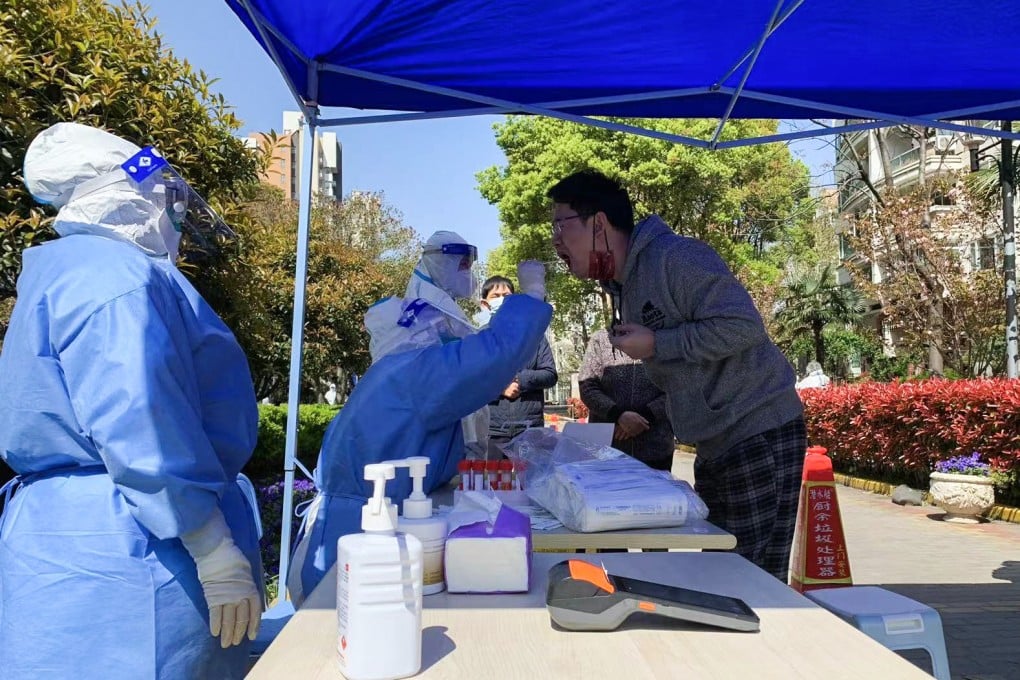China starts Covid-19 mass testing for 25 million Shanghai residents
- The gateway city to international trade records 9,000 new cases, with total infections topping 61,000
- Military personnel and equipment including Y-20 transport planes drafted as three-day rapid test exercise gets under way

Amid a citywide lockdown, Shanghai reported a record 9,000 new cases on Monday, taking total infections since March 1, when the outbreak began, past 61,000 – most of them asymptomatic, making detection difficult.
All of the city’s residents are required to take part in Monday’s nucleic acid testing, with positive results leading to hospitalisation or quarantine within 36 hours of the start of the exercise, which began in the early morning.
On Sunday, all citizens were required to conduct a rapid antigen test on themselves at home.
Shanghai is undergoing a citywide mass Covid-19 testing to spot and quarantine infected people, with Y-20 military transport planes used to bring in health workers and equipment.
“As we are adamant in containing the virus outbreak, it is also of great significance to ensure a smooth operation of Shanghai and its key economic functions,” Vice-Premier Sun Chunlan said on Sunday, during an inspection tour of the city, according to state news agency Xinhua.